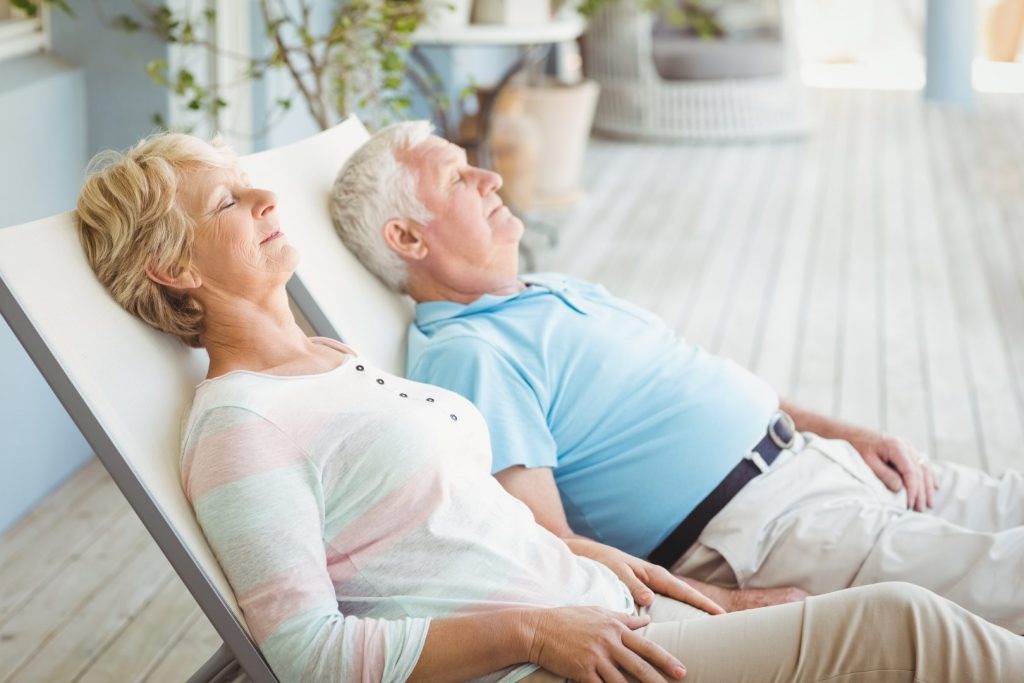
Rather than taking the time to fix up our homes for sale, maintaining them in showroom appearance, and taking time to find another home, we can enjoy our current one as we age in place
When we age in place and remain in our homes – whether it’s us and our homes or our clients and theirs – we get to change or step away from a scenario that affects the homebuying public, and especially those who already live in a home they own.
As we close out the current calendar and kick off the new year, one thing we won’t have to be concerned about in the new year – because we aren’t going to be moving anyplace – is spending hours and resources looking for a new place to live in or to purchase. We know where we will be living this time next year – where we are now.
There is an inconvenient truth that affects homeowners that are selling their homes and moving into something else that will not affect any of us who are aging in place. This is largely disruptive for them, but will not impact us at all as we go about continuing to live in the homes we love.
By the way, the same situation is true for selling a car, boat, important collection, artwork, or any other thing of value that we have owned. However, we are talking about homes, so let’s keep going.
There comes a time, if we are so inclined, when we decide to sell something that means a lot to us such as our home, a piece of property, a beach house, a vacation property, or as just mentioned, a car, boat, RV, collection, artwork, or similar item that we esteem. Until that point in time when we arrive at the emotional decision to part with the item that has meant so much to us and which we have valued and enjoyed while owning and using it, our property was free for us to us anyway that we desired.
However, once we reached the decision to sell or part with the item (whatever it is but say it’s our home), ownership of that item transfers from us – immediately. We don’t know who the new owner is going to be yet, and we quite possibly have not even advertised it or told anyone else yet that it is going to be available. Nevertheless, we know that the new owner will be someone other than us.
The item that we are selling ceases to be ours – emotionally and ethically but not legally. We have given up the effective title and claim to the property the moment a decision is reached to sell it – even before it is advertised or anyone knows that it is available.
As such, we must treat it with added respect – as a guest or visitor would do. We actually are using someone else’s property at that point – we just don’t know who the new owner will be yet. When we visit someone else’s home to attend a dinner or party, we behave more carefully. We don’t want to spill anything or leave any marks on the furniture or elsewhere that were not there when we arrived. The day after we were there, our host should not be able to tell that we were even present. The same is true when we ask to borrow a neighbor’s, or even a close friend’s or family member’s car, golf clubs, camera, or anything else they are willing to loan us. We treat it better and more kindly that we would if it were our own. After all, we can accept (perhaps not initially) damaging our own property but that of someone else.
Giving up ownership emotionally is a major paradigm shift, but an important one. That’s why we paint, fix up, clean, and get everything ready in the home or vehicle before listing it – knowing that we are making it ready for someone else to enjoy. Our ownership claim has ended. We are only being given temporary rights to continue using it until a sale occurs – and we are careful not to leave any traces that we have continued to use it.
Many people react just the opposite and figure that since they are selling their home any way they can be a little more careless or reckless with it – that it doesn’t really matter how they take care of it since it soon will belong to someone else. That is unfair to the eventual new owner and will hurt the price achieved and the time needed to sell it.
As for us, since we are staying put where we are, maintaining our home so it will look good for a future owner and so it can bring the best price offer is not our concern at all since our home is not available. Instead, we can spend our time enjoying our home and not worrying about how something (a liquid spill, for instance) might affect how someone else values our home. It only has to appeal to us and no one else. We are staying where we are, and our home just has to meet our needs and desires. To the extent it doesn’t at any point, we can have renovations (minor or major) done.
